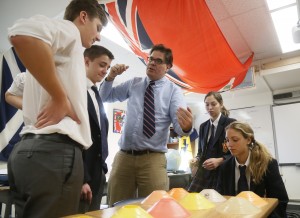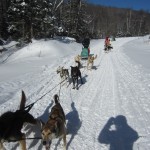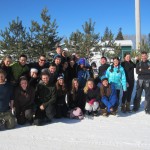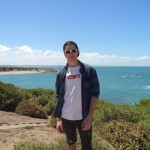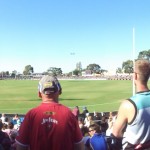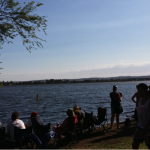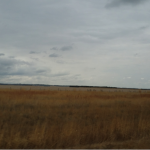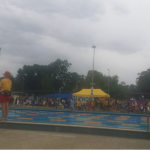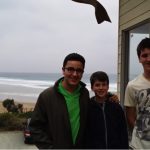Leading by example, we are committed to the fullest development of students in mind, body and heart, preparing them for success and leadership in a sustainable global society.
—LCC Mission Statement
It is this mission statement that guides our daily activities at LCC. Our core mission asks a lot. We don’t solely focus on academics in the classroom; we stress development of students’ bodies and hearts. We support the inherent importance of physical activity, the arts, as well as character and leadership development of each student. We also have a focus on sustainability and being global in our orientation.
There’s a lot to discuss in this statement. But let me focus on the simple introductory phrase in our mission statement, “leading by example.” I love that part of the statement, because it is a call to action for all of us on our campus to literally “lead by example.” It is a reminder to teachers, staff, parents, alumni, and of course, to all students to try their hardest and simply do their best. It doesn’t ask us to pretend we are perfect or excellent all the time, but to commit to try hard most of the time. And let’s face it, that’s difficult, because life is hard – and we all constantly face challenges. But I believe deeply that we become a better community by trying, putting forth consistent effort, accepting challenges and living by a simple rule: respect yourself and all others as you do yourself.
In a community or group setting, aiming for high standards and norms is very important. So as each student tries to learn, improve and grow, it is the fact that they can do so in a culture of respect that is probably most important at LCC. No student should ever be mocked, bothered or harassed when they take a risk or stand apart from their peers. They all deserve that.
There is a great deal of discussion in society at large about bullying and its consequences. I attended a conference on this topic just over a week ago with experts from across Canada and the USA. They presented data and identified interesting trends. The researchers reinforced an important point: the value of EQ or emotional intelligence vs. IQ, academic intelligence. Studies show that it is EQ that is more closely associated with long-term success in life: compassion, empathy, resilience, and capacity to work with people in groups. These are key EQ skills young people will need to develop over time to help them grow, mature and develop a strong character.
Despite grave anxiety by many parents about students’ online lives, current research shows that the vast majority of students use the Internet for the right reasons: to complete homework, connect with their friends and check out the latest funny videos. Do they need some instruction and guidance on managing their digital lives? Yes, but it us affirming to know from the researchers that most teens are respectful digital citizens most of the time.
If and when there are issues of significance with peer relationships in our school, it has been our experience in recent years that when necessary, LCC students usually find an adult to speak to, to help work things out (e.g., teacher, advisor, coach, counsellor). And when serious issues occur off-site, between our students or students from other schools, we always make it our business to investigate and demonstrate care for the welfare of our students, because it is the right thing to do.
In essence, “leading by example” is what all of our students do most of the time at LCC, and I commend them for that. I urge them to continue to respect themselves and their peers and care about the culture and tone of our school. Regardless of the rulebook, it is how all of our students act on a day-to-day basis and occasionally when under duress that defines our collective culture. Stand tall for respect, empathy and the right to be different. When challenged, students need to find a way to always stand up for the quiet victim. That is at the very foundation of who we are as a community. –Chris Shannon, Headmaster

